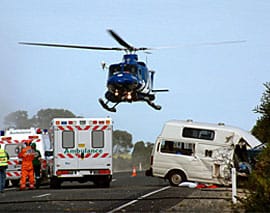What Does Life Look Like After a Brain Injury?
A brain injury can happen to anyone in the blink of an eye. Whether from a car accident, a fall, an assault, or a stroke, a brain injury can dramatically change the course of your life in an instant. At The Law Offices of Keith Bregoff, we have seen the profound impact a traumatic brain injury (TBI) can have on an individual and their loved ones. Let’s explore what life may look like after sustaining a brain injury and the challenges that often come with recovery and adjustment to a new reality.
The Immediate Aftermath
In the first hours, days, and weeks after a brain injury, the focus is typically on stabilizing the person’s condition and preventing further damage. This may involve surgery, medications, and close monitoring in the intensive care unit. The severity of the injury will determine the level of medical intervention required and the prognosis for recovery.
During this acute phase, the injured person may be unconscious, in a coma, or have altered consciousness. Family members are often in a state of shock, trying to process what has happened and make critical decisions about care. It is a time of great uncertainty and emotional turmoil.
Early Recovery
As the person begins to regain consciousness and become more aware, the extent of their injuries may start to become apparent. Common effects of a brain injury can include:
- Physical impairments: Weakness, paralysis, spasticity, balance and coordination problems, sensory changes
- Cognitive deficits: Memory loss, attention difficulties, slowed processing speed, problems with executive functions like planning and problem-solving
- Communication issues: Difficulty speaking, finding words, or understanding language (aphasia)
- Emotional and behavioral changes: Mood swings, irritability, impulsivity, depression, anxiety
The early stages of recovery often involve intensive rehabilitation with a multidisciplinary team that may include physicians, nurses, physical therapists, occupational therapists, speech-language pathologists, neuropsychologists, and social workers. The goal is to help the person regain as much function as possible and learn strategies to compensate for deficits.
Progress can be slow and unpredictable. Small gains are celebrated, but setbacks are also common. The injured person may become easily frustrated as the reality of their limitations sets in. Family dynamics shift as roles change, and everyone tries to adjust to a new normal.
Ongoing Challenges
As time goes on, the full picture of how the brain injury will affect the person’s life becomes clearer. Some people make a full recovery, while others are left with permanent disabilities. Challenges may persist for months or years after the initial injury.
Cognitive and Emotional Impact
Memory problems, difficulty concentrating, and slowed thinking can make it hard to return to work or school. The person may struggle to keep up with conversations, remember appointments, or complete tasks they once found easy. They may feel like a different person, leading to a sense of loss and grief. Emotional and behavioral changes can strain relationships. The person may lash out at loved ones, withdraw socially, or seem like a stranger. Mood swings, apathy, and lack of inhibition can be especially challenging for families to navigate. In some cases, the injury exacerbates pre-existing mental health conditions or substance abuse issues.
Physical Limitations
Depending on the areas of the brain affected, the person may have ongoing physical impairments that limit their mobility and ability to care for themselves or participate in activities they once enjoyed. Chronic pain, headaches, fatigue, and sleep disturbances are also common after a TBI. Adapting to these changes may require modifications to the home, the use of assistive devices, and ongoing therapy. The person may need to relearn basic skills like dressing, cooking, or driving. Loss of independence can be a significant blow to self-esteem and sense of identity.
Finding a New Path Forward
Life after a brain injury is often described as a “new normal.” It may look very different from the life the person had before, but it is still possible to find meaning, purpose, and joy. With time, many people learn to embrace their new reality and focus on their strengths rather than their limitations. Connecting with other brain injury survivors through support groups or mentoring programs can provide a sense of community and valuable coping strategies. Setting realistic goals, celebrating small victories, and practicing self-compassion are all important parts of the ongoing recovery process.
Our Legal Team Can Help
At The Law Offices of Keith Bregoff, we understand the devastating impact a brain injury can have on individuals and families. If you have suffered a TBI due to another person’s carelessness, we are here to help you seek the compensation you need to move forward. Get in touch with us today at (772)-492-8967.



